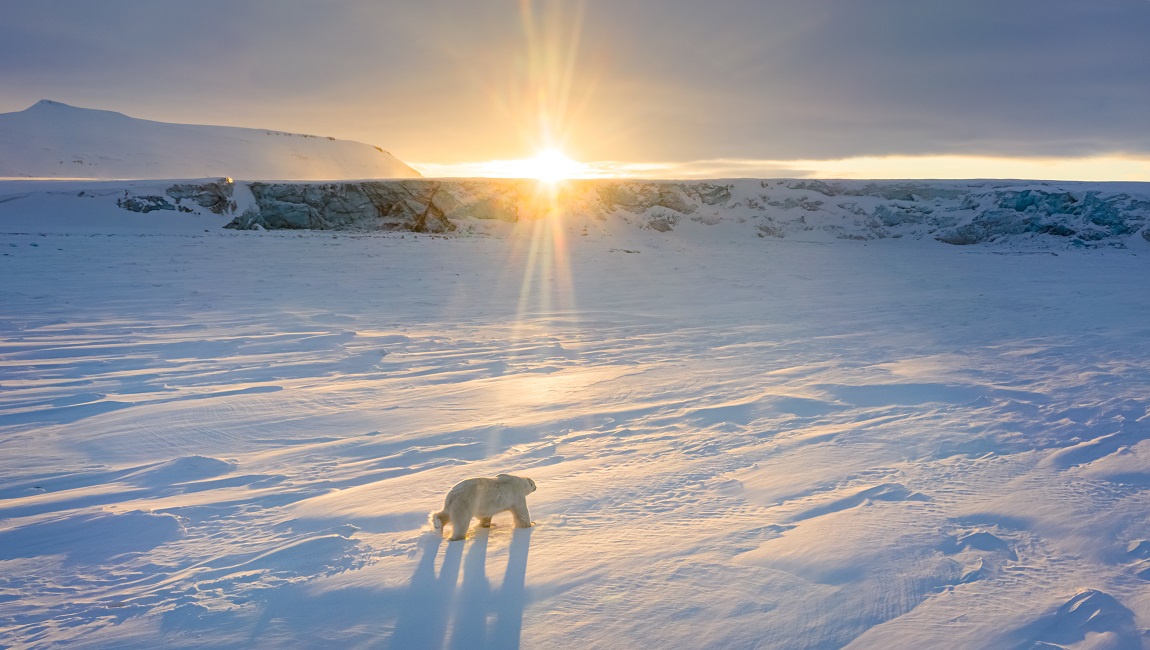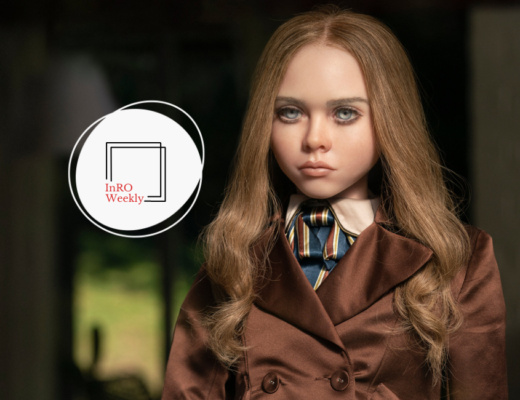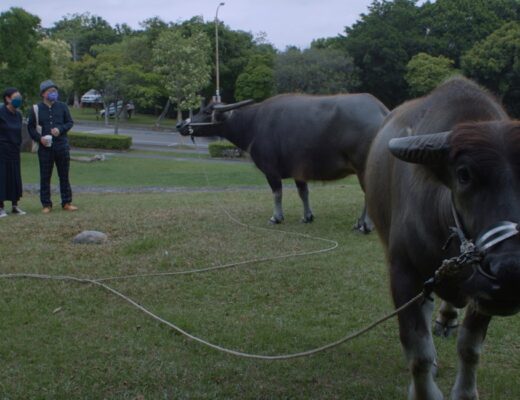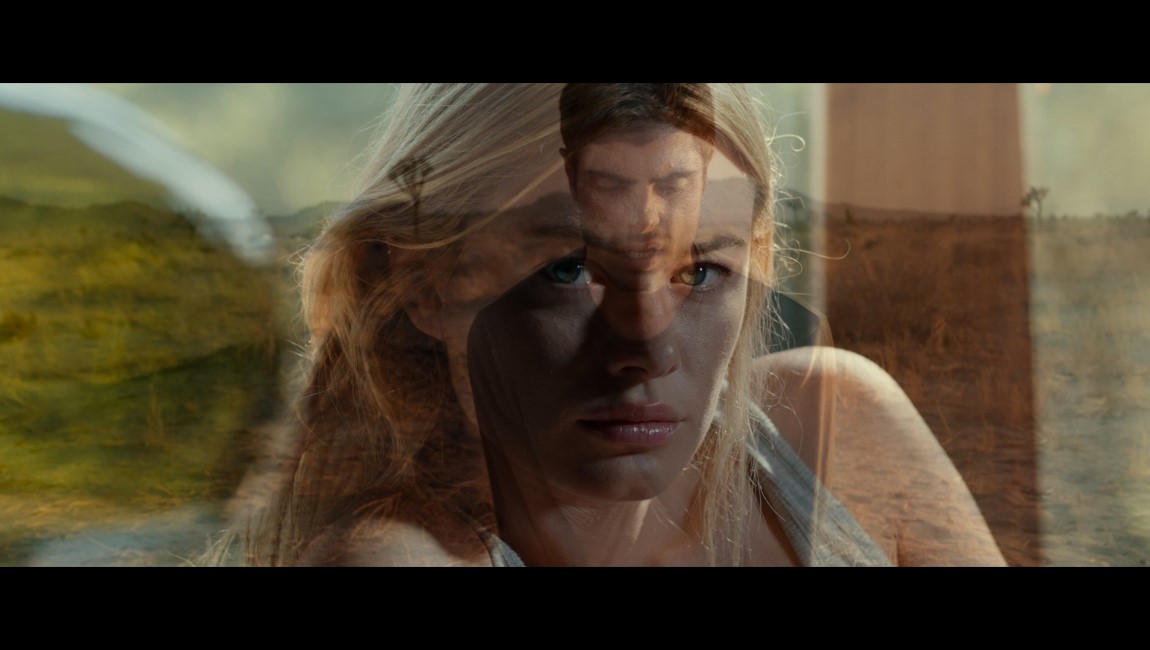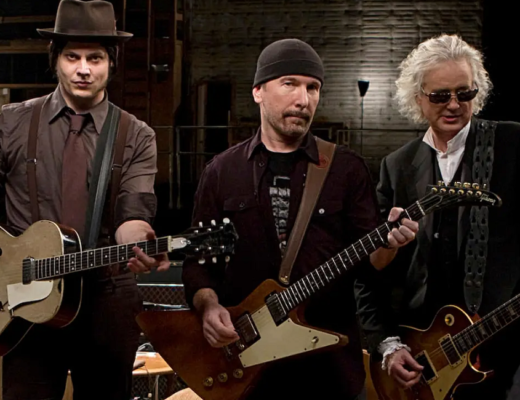Polar Bear is a pleasing visual document and marks something of a welcome pivot for Disneynature, but still boasts a low ceiling thanks to the franchise’s template approach.
It’s stating the obvious to note that at this point, 14 years into its existence, Disneynature is an entirely sanitized product, increasingly infantilizing audiences with each subsequent effort. That’s not to say the enterprise in sum is valueless, but that post-Earth and Oceans — which were more even-tempered riffs on Planet Earth before the streaming service-aided nature documentary boom — the studio reconceived the franchise as live-action cartoons, capitalizing on the general public’s love of cuddly creature anthropomorphism. Each entry since has typically taken on a coming-of-age shape, foregrounding an eponymous animal and tracing the growing pains and lighthearted hijinx of one of their young, replete with narration from voice actor royalty: James Earl Jones, Tim Allen, Samuel L. Jackson, John C. Reilly, Meryl Streep, Morgan Freeman, and Tina Fey all count themselves among the roster (along with actual royalty in the form of Meghan, Duchess of Sussex, for some reason). African Cats, Monkey Kingdom, and Born in China were quaint films of broad zoological portraiture, manufacturing low-stakes narratives to guide story-motivated viewers and stuffing the movies with cute animal oopsy-daisies. It’s a pretty unimpeachable formula for easy family viewing, and now, after taking a breather in 2021, Disneynature returns to its usual Earth Day release slot with Polar Bear, the latest effort to platform a zoo favorite in the name of light environmentalism, while also communicating the franchise’s age — we already had a Bears in 2014.
“With age comes wisdom” is, of course, a fairly useless adage mostly weaponized by fogies coming to terms with their own obsoletion, but if Polar Bear is any indication, the Disneynature brand may be going through something of a maturation process. The general arc of quality has been pointing downhill for a while now, a truth that has become more pronounced amidst the streaming age’s onslaught of superior nature programming, coming to a head when Apple TV’s The Elephant Queen vastly out-classed Elephant when they were released 6 months apart in 2019-2020. But this latest effort from Disneynature marks some evident pivots: most notably, it’s the first to be rated PG rather than G, and that’s not an accident. Following a pair of young cubs who jaunt around the arctic with their mother in perpetual search of food, Polar Bear doesn’t exactly revel in nature’s brutality, but it does less to buffer that reality with whimsy — one mid-film shot is both devastating and aesthetically potent. The film also boasts Catherine Keener as narrator, which is an appreciably less splashy choice after the recent trio of Meghan, Ed Helms, and Natalie Portman, and her voiceover is consistently inflected with climate change worry. This, of course, has been implicit in all Disneynature ventures, but the images here — such as a cub with a face caked in mud after glooping her way through a path that should have been frozen ground — hold more weight and melancholy than the previous, more paradisiacal entries’ lip service ever communicated. That’s not to overstate and suggest that anything profound is taking place here, but it’s at least something to see the prevailing template somewhat upset.
More impressive, however, is the clear care given to the film’s aesthetic pursuits. This isn’t simply point-and-shoot documentary filmmaking, where Elysian vistas are charged with doing the heavy lifting of visual “art,” presenting the striking colors and shapes of nature with pleasant but uncomplicated regurgitation. Instead, the Arctic landscape here is presented in far more idiosyncratic visual terms, often captured in borderline abstract compositions thanks to the geography’s craggy texturing and rippling whites and blues. Directors Alastair Fothergill and Jeff Wilson are certainly given an assist in this regard, but do the work to articulate a precise vision: the potentially monotonous palette of white beasts atop white land is energized with shots of slate-colored surfaces and ochre intrusions, and interstitial shots of the singular, far-north image of a clear blue sky and dark gray sea sandwiching a peach horizon. And it’s all framed for maximum clarity as well as playful image-making, the directors utilizing drone and aerial shots to capture these giant bodies trudging across snow or gracefully snaking through floes, alternately observing the immensity of animal and terrain.
Of course, there’s still the trouble of reconciling a film like Polar Bear with superior, thematically richer nat-doc efforts. Not nearly as geared toward children as previous entries, it makes for a commercial doc oddity in that it’s probably best suited for adults willing to dial down the volume and take in its aesthetic pleasures. Regardless of audience, there’s certainly innate merit in continually exposing an increasingly solipsistic and virtual culture — and especially its children — to the natural world and the existential peril we all face at the feet of its devastation. But as a piece of art in its own right, particularly discursively, Polar Bear remains an underbaked trifle, one which tips its hat toward a more progressive, substantive future for Disneynature, but whose praise here is largely conditional within the context of an underwhelming franchise.
You can currently stream Alastair Fothergill & Jeff Wilson’s Polar Bear on Disney+.

